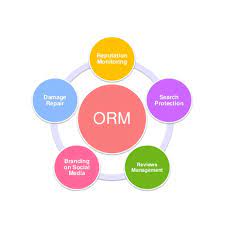Mastering the Art of Reputation Management: Building Trust and Credibility
Reputation Management: Building Trust and Credibility
In today’s digital age, reputation management has become crucial for businesses of all sizes. Your reputation is what sets you apart from your competitors and influences how customers perceive your brand. Effective reputation management involves monitoring, influencing, and controlling how your brand is perceived by the public.
A positive reputation can lead to increased trust, credibility, and customer loyalty. On the other hand, a negative reputation can damage your brand’s image and impact your bottom line. This is why proactive reputation management is essential for maintaining a strong online presence.
The Importance of Online Reputation
With the rise of social media and online review platforms, customers now have more power than ever to share their opinions about businesses. A single negative review or social media post can quickly spread and tarnish your reputation.
Managing your online reputation involves actively monitoring social media channels, review sites, and other online platforms for mentions of your brand. Responding promptly to both positive and negative feedback shows that you value customer input and are committed to addressing any issues that may arise.
Building a Positive Reputation
To build a positive reputation, focus on delivering exceptional products or services consistently. Providing excellent customer service and engaging with your audience in a meaningful way can help foster trust and loyalty among customers.
Create valuable content that showcases your expertise in your industry. By sharing informative articles, case studies, and success stories, you can position yourself as a thought leader in your field.
Recovering from a Negative Reputation
If your business has received negative feedback or faced a PR crisis, it’s important to address the issue head-on. Acknowledge any mistakes that were made, apologise if necessary, and take steps to rectify the situation.
Work on rebuilding trust with customers by being transparent about the actions you are taking to improve. Implementing changes based on feedback shows that you are committed to learning from past mistakes and prioritising customer satisfaction moving forward.
Conclusion
Reputation management is an ongoing process that requires dedication and vigilance. By actively monitoring how your brand is perceived online, engaging with customers authentically, and delivering exceptional experiences consistently, you can build a strong reputation that sets you apart from competitors.
Understanding Reputation Management: Key Roles, Definitions, and Elements
- What does a reputation manager do?
- What is meant by reputation management?
- What is an example of reputation management?
- What are the four elements of reputation management?
- What does reputation management mean?
- What is reputation management?
- What are the key elements of reputation management?
- What does a reputation management company do?
What does a reputation manager do?
A reputation manager plays a crucial role in shaping and safeguarding a company’s image and perception among its target audience. They are responsible for monitoring, analysing, and influencing how the brand is perceived both online and offline. A reputation manager implements strategies to enhance positive visibility, address any negative feedback or crises effectively, and maintain a consistent brand image that aligns with the company’s values and objectives. By proactively managing the brand’s reputation, a reputation manager helps build trust, credibility, and loyalty among customers, ultimately contributing to the overall success and growth of the business.
What is meant by reputation management?
Reputation management refers to the strategic process of monitoring, influencing, and controlling how a brand or individual is perceived by the public. It involves actively managing online reviews, social media mentions, and other forms of feedback to maintain a positive reputation and build trust with customers. By proactively addressing any negative feedback or PR crises and consistently delivering exceptional products or services, reputation management aims to shape a favourable perception of a business or individual in the eyes of their target audience.
What is an example of reputation management?
An example of reputation management can be seen in how a multinational corporation responds to a product recall. In such a scenario, the company must act swiftly and transparently to address the issue, communicate with affected customers, and implement corrective measures. By taking responsibility for the problem, offering refunds or replacements, and demonstrating a commitment to product safety and quality, the company can mitigate damage to its reputation and maintain trust among consumers. Effective reputation management in this context involves not only resolving the immediate issue but also showing accountability and dedication to customer satisfaction in the long term.
What are the four elements of reputation management?
In the realm of reputation management, the four key elements that form the foundation of a successful strategy are monitoring, influencing, controlling, and repairing. Monitoring involves actively tracking online mentions and feedback about your brand to stay informed about how you are perceived. Influencing entails shaping public perception through strategic communication and engagement with your target audience. Controlling refers to taking proactive steps to manage any potential risks or crises that may impact your reputation. Lastly, repairing involves addressing any negative feedback or issues promptly and transparently to rebuild trust and credibility with stakeholders. By incorporating these four elements into your reputation management approach, you can effectively safeguard and enhance your brand’s image in the eyes of the public.
What does reputation management mean?
Reputation management refers to the strategic practice of monitoring, influencing, and controlling how a brand or individual is perceived by the public. It involves actively managing online reviews, social media mentions, and other forms of feedback to maintain a positive image and build credibility. By proactively addressing any negative feedback or PR crises, businesses can protect their reputation and foster trust among customers. Reputation management is essential in today’s digital age where a single online comment can have a significant impact on how a brand is perceived.
What is reputation management?
Reputation management is the practice of monitoring, influencing, and controlling how a brand or individual is perceived by the public. It involves actively managing online reviews, social media mentions, and other forms of feedback to shape a positive image and build trust with customers. By proactively addressing any negative feedback or PR crises and highlighting positive aspects of a brand’s identity, reputation management aims to enhance credibility, foster customer loyalty, and differentiate the brand in a competitive market. Ultimately, reputation management plays a crucial role in shaping public perception and maintaining a strong online presence for businesses and individuals alike.
What are the key elements of reputation management?
When it comes to reputation management, several key elements play a crucial role in shaping how a business is perceived by its audience. Monitoring online mentions and feedback is essential to stay informed about what customers are saying about the brand. Engaging with customers through timely responses and addressing any issues or concerns demonstrates a commitment to customer satisfaction. Building a strong online presence through positive content creation and thought leadership helps establish credibility and trust. Proactively managing crises and handling negative feedback transparently are also vital aspects of reputation management. Ultimately, maintaining consistency in delivering high-quality products or services and upholding ethical business practices are fundamental elements that contribute to a positive reputation.
What does a reputation management company do?
A reputation management company specialises in monitoring, influencing, and controlling how a brand is perceived by the public. These companies employ various strategies to build and maintain a positive online reputation for their clients. Services typically include monitoring social media platforms, review sites, and search engine results for mentions of the brand, responding to feedback promptly, generating positive content to showcase the brand’s strengths, and addressing any negative feedback or PR crises effectively. By working closely with clients to understand their unique needs and goals, reputation management companies help businesses enhance their online presence, build trust with customers, and protect their brand image from potential damage.








